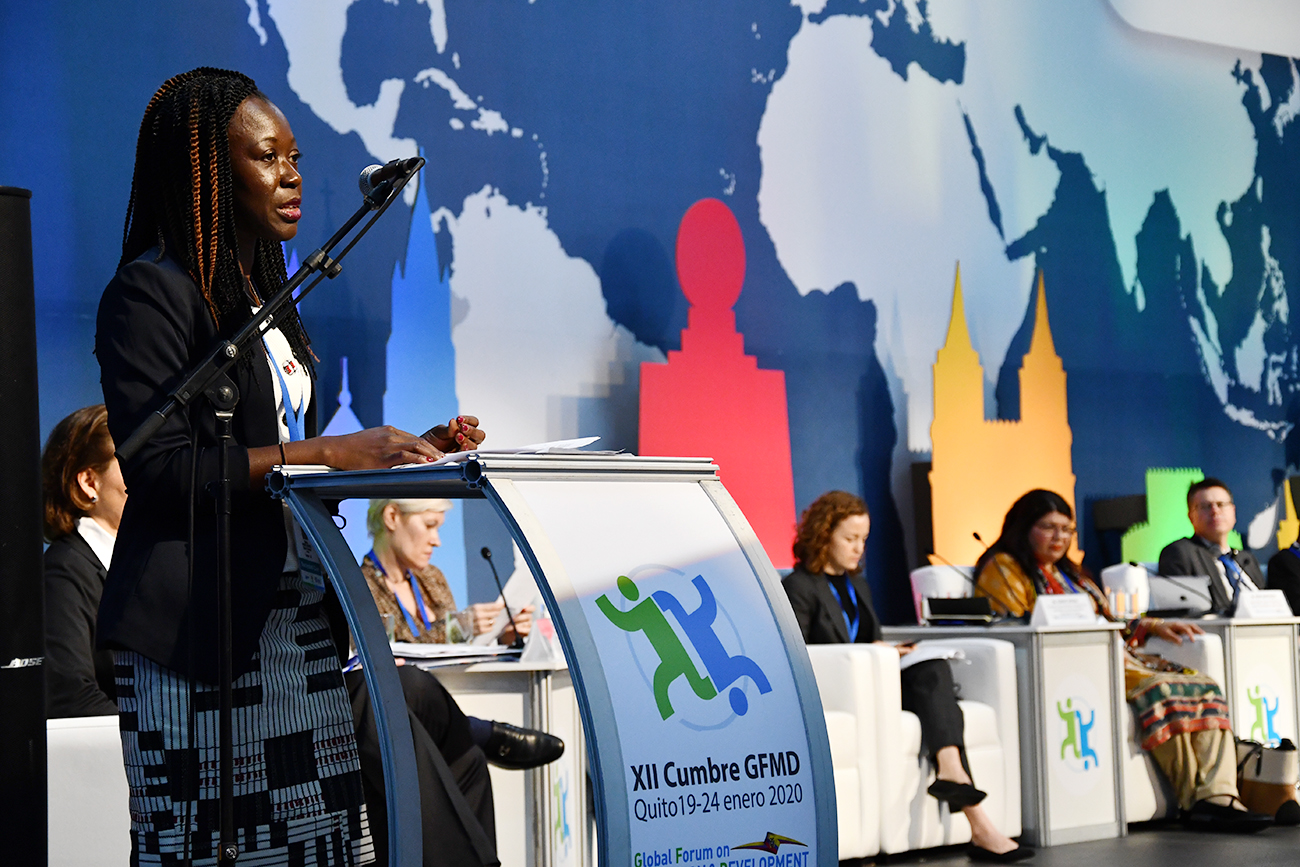This morning, at the opening of the Common Space of the 12th Global Forum on Migration and Development Summit in Quito, civil society Co-Chair Stella Opoku-Owusu took the floor to put the perspective of civil society under the spotlight.
She shared with participants a series of recommendations agreed during yesterday’s Civil Society Day. Two of the issues discussed by civil society representatives (criminalization of migrants and climate change-related displacement) are not present on the agenda of the other Forum’s mechanisms, so they become even more important.
The recommendations brought to the Common Space by civil society representatives reflect five different, though interlinked, thematic priorities.
1. The effects of climate change are often borderless, therefore, tackling them requires collective action which involves national and local state actors, climate change experts, academics, and also regional civil society networks.
The links between climate change and human mobility are complex, yet the focus should remain on climate change. Focusing too much on migration and displacement numbers risks feeding into a narrative of “invasion”.
2. Cities can play a major role in keeping migrants safe. In that sense, sanctuary cities are an important alternative to the criminalization of migrants and migration.
Civil society representatives acknowledge the importance of upholding shared human values and demand to immediately stop the interference with humanitarian search and rescue missions at sea.
Furthermore, civil society representatives ask that governments “be mindful of language that perpetuates this idea that migrants in themselves are ‘illegal’ and therefore not deserving, or simplified narratives of migrants being responsible for the lack of jobs. These not only exacerbate negative public opinion but also provide the basis for discriminatory policies. ”
3. The focus should be on migrants’ access to rights as opposed to ‘access to services’, with an emphasis on respecting the dignity and humanity of all migrants regardless of their migration status.
4. Effective partnerships involving all necessary actors at local and national level and across borders are key to upholding dignified labor migration policies and practices as well as access to decent work and safe working conditions.
As a positive example, “the Global Compact for Migration provided an opportunity for trade unions and civil society in Nepal, Bangladesh, India and Sri Lanka to engage more effectively together and with governments on labor migration.”
5. The needs of migrants in mixed migration movements need to be met through the application of humanitarian principles, regardless of their status, and in partnerships across all agencies, civil society organizations, governments and local state actors.
Three recommendations highlighted the importance of the following cross-cutting issues:
- Youth, both migrants and from the host communities, are active and engaged citizens creating innovative solutions for the integration of migrants. They need to be heard and taken into account.
- The agency and leadership of women and girls need to be recognized without falling into tokenism.
- Diaspora and migrant organizations have a huge role to play in development through their links in countries of origin and destination – and in countering misinformation and challenging negative stereotypes.
Ms. Opoku-Owusu highlighted how it is possible to find good practices and innovative initiatives promoted by many different actors involved in migration and development.
Civil society organizations stand ready, she concluded, to work in partnership with national and local governments and other stakeholders to take forward these concrete steps towards collective action.

